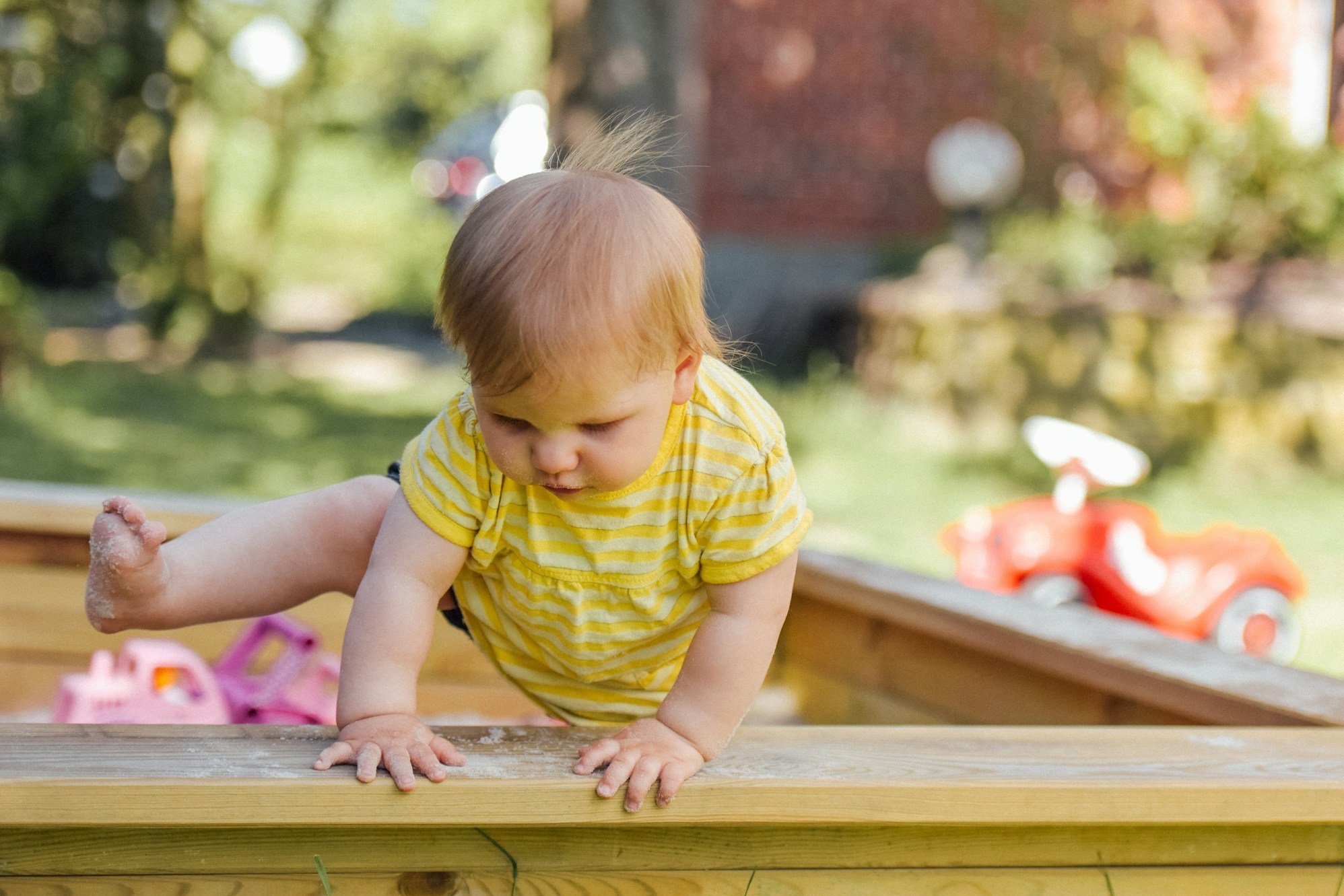Toddler’s Program (2-3 Years)
-

Practical Life
Practical Life activities are a fundamental part of the toddler's program in our Montessori preschool, supporting the development of independence, coordination, and a sense of responsibility. These activities are designed to mirror real-life tasks, such as pouring water, washing hands, sweeping, or preparing snacks, which toddlers naturally enjoy and find meaningful.
Through Practical Life exercises, toddlers build fine and gross motor skills while also learning to focus, follow steps, and complete tasks. These activities not only strengthen their self-confidence but also instill habits of care for themselves, others, and their environment. Practical Life work lays the foundation for cognitive and social development, helping toddlers gain a sense of achievement and an early appreciation for contributing to their community.
-

Language Development
Language development is a key focus in the toddler's program at our Montessori preschool, as this is a sensitive period for communication growth. Our prepared environment is rich in language opportunities, offering toddlers the chance to expand their vocabulary, improve pronunciation, and develop listening and speaking skills.
Activities such as storytelling, singing, naming objects, and engaging in simple conversations are intentionally designed to nurture language. Montessori materials, like picture cards and books, further support the connection between spoken and written words.
Through these experiences, toddlers not only build a foundation for reading and writing but also enhance their ability to express themselves clearly and understand others. Language development in this program fosters communication skills that are vital for building relationships and exploring the world around them.
-

Sensorial Development
Sensorial activities are a key component of the toddler's program in our Montessori preschool, designed to refine and enhance the child's senses as they explore the world. These activities help toddlers classify and understand their experiences by isolating and emphasizing specific sensory impressions, such as texture, color, sound, and shape.
Our Montessori environment provides hands-on materials that encourage exploration and discovery. For example, toddlers may engage in activities like sorting objects by size or color, matching textures, or identifying sounds. These tasks not only sharpen their sensory perception but also lay the groundwork for cognitive skills such as pattern recognition, problem-solving, and critical thinking.
By engaging their senses in purposeful ways, toddlers develop focus, concentration, and an appreciation for the richness of their environment. Sensorial activities also prepare children for more complex academic concepts, fostering curiosity and a lifelong love of learning.
-

Movement
Fine and Gross motor skills are at the heart of the toddler's program in our Montessori preschool, supporting holistic development during this formative stage. Activities that promote gross motor skills, such as walking, climbing, and balancing, help toddlers build strength, coordination, and confidence. Simultaneously, fine motor skills are nurtured through hands-on tasks like pouring, sorting, and using tools, which refine their dexterity and precision.
In our prepared Montessori environment, movement is purposeful and integrated into every aspect of learning. Toddlers are encouraged to explore and engage actively, developing their physical capabilities while fostering independence and concentration. By combining movement with meaningful activities, the program lays the groundwork for physical, cognitive, and emotional growth.
-

Socialization
Socialization, often referred to as Grace and Courtesy in Montessori education, is a cornerstone of the toddler's program. At this age, children begin to learn how to interact with others and navigate social environments. Through intentional activities and modeled behavior, toddlers are gently guided to develop essential social skills such as sharing, taking turns, and using polite language like "please" and "thank you."
Our Montessori environment provides real-life opportunities for practicing Grace and Courtesy. Toddlers learn to greet others, care for their surroundings, and express their needs respectfully, fostering a sense of community and belonging. These early lessons in socialization lay the foundation for empathy, collaboration, and respectful communication, which are vital skills for lifelong relationships.
-

Functional Independence
Functional independence is a core focus of the toddler's program in our Montessori preschool, empowering children to care for themselves and their environment. Toddlers are encouraged to take on tasks such as dressing, feeding, and tidying up, which are tailored to their abilities and developmental stage.
Through these activities, toddlers build confidence, develop problem-solving skills, and cultivate a sense of responsibility. Our prepared Montessori environment provides tools and materials designed for their small hands, making it easier for them to succeed in their efforts.
By fostering functional independence, the program helps toddlers develop self-reliance, patience, and perseverance. These skills not only support their immediate growth but also form a strong foundation for future learning and personal development.

